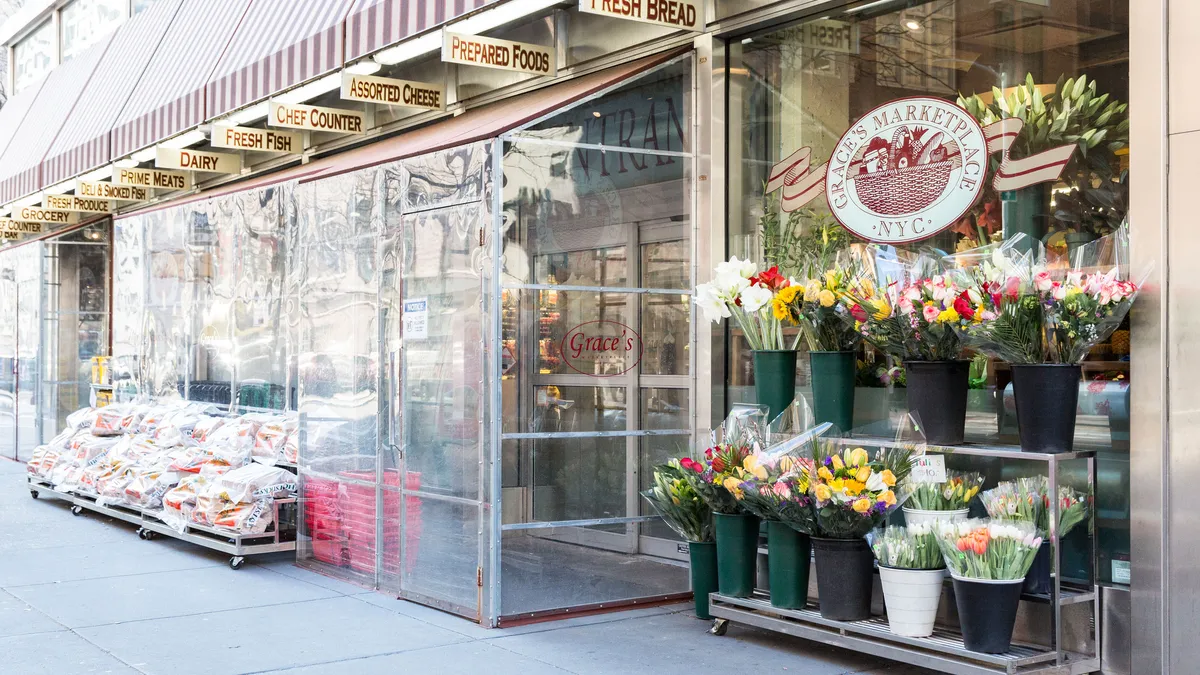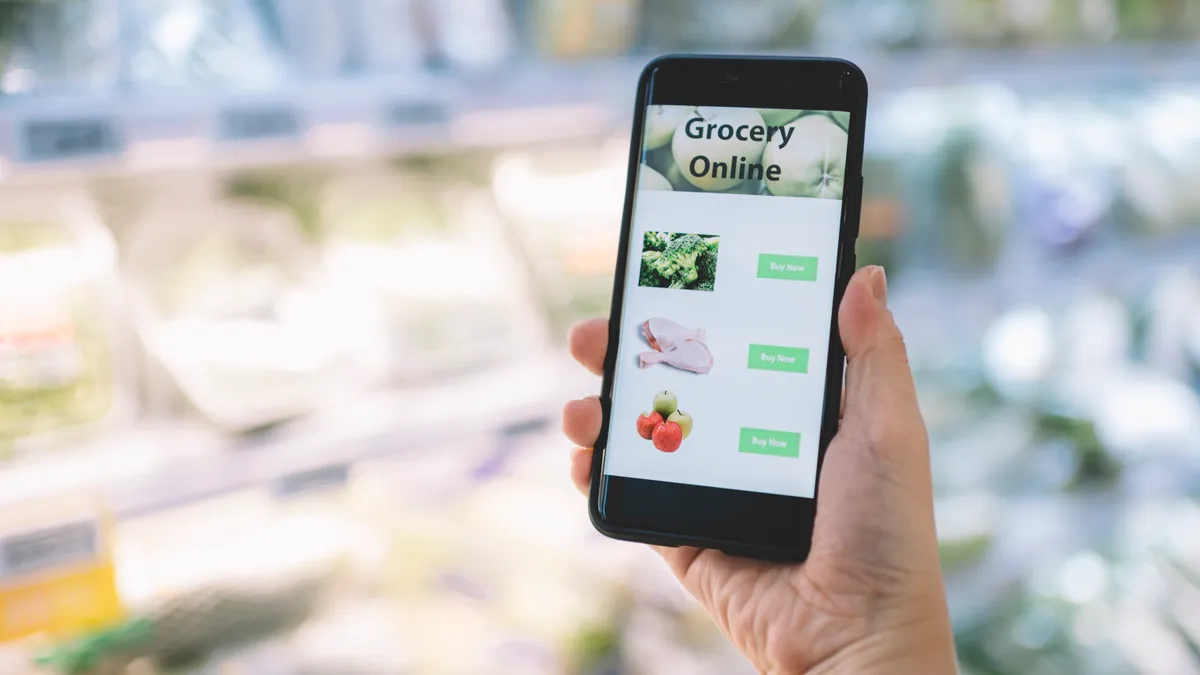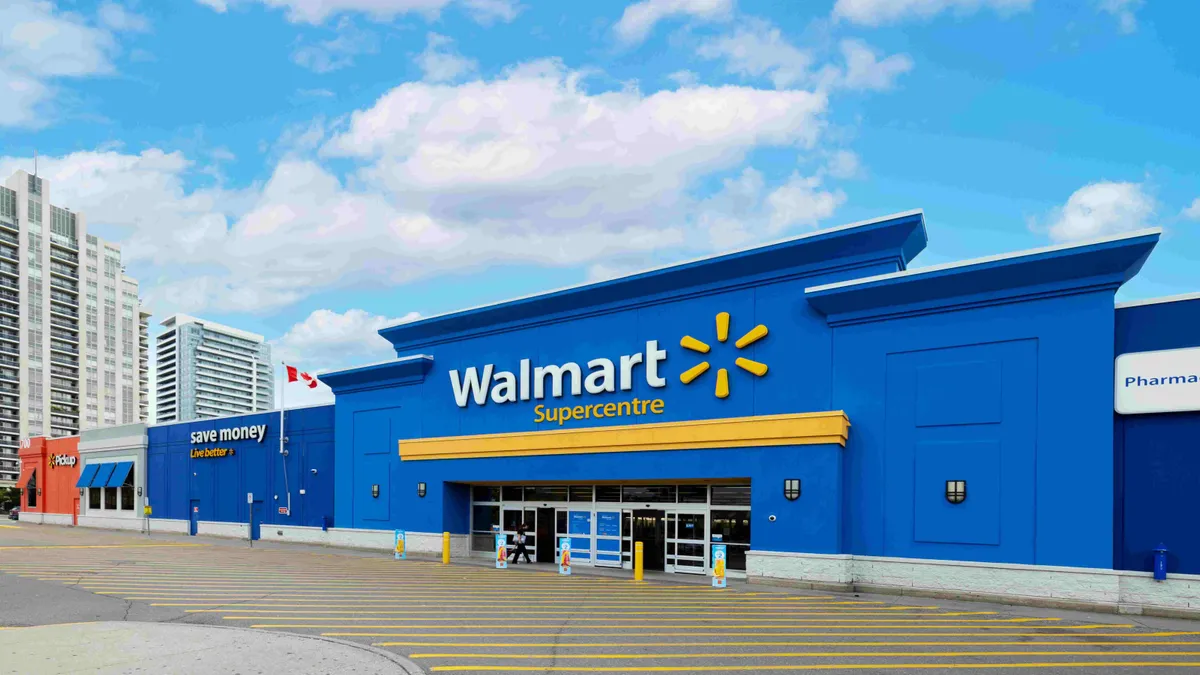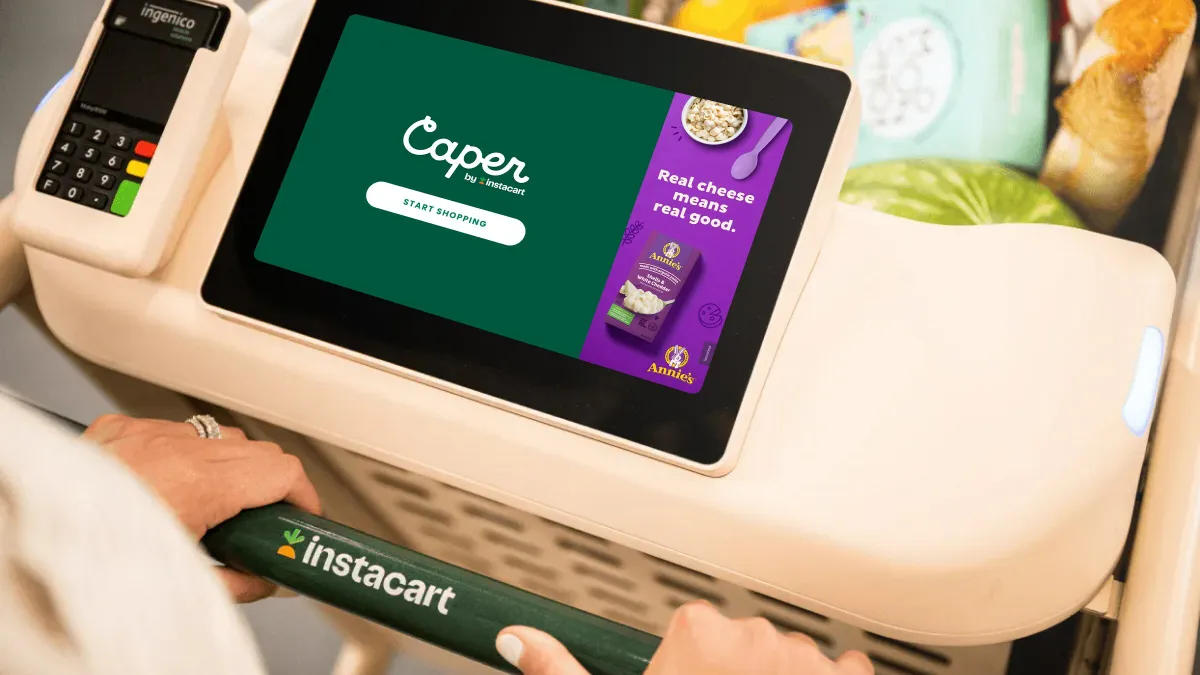In 1985, Grace Balducci Doria, daughter of the iconic New York City grocer Balducci's, and her husband Joe, opened Grace's Marketplace in the Upper East Side of Manhattan in New York City. It was a small grocery store, drawing in neighborhood families with its fresh produce and prepared foods, the latter of which featured dishes inspired by recipes passed down from Grace's grandmother.
Today, the independent grocer has an additional New York location in Greenvale. Daniel Soares, strategy director at Grace's Marketplace, told Grocery Dive that if you walk through the stores now, you'll find his grandmother Grace, his uncles, brother and cousins working every day.
After 35 years in business, however, Grace’s Marketplace is venturing into e-commerce by partnering with Mercato, an online delivery platform focused on independent grocers and specialty food stores.
Through the partnership, shoppers near Grace's two New York stores can order online and have it shipped the same day via DoorDash. Mercato offers two membership plans. Its Neighborhood plan, which costs $8 a month or $96 a year, serves customers within a three-mile radius of a store, while the City plan covers up to 10 miles for $19 a month or $228 a year.
While typically targeting families, Grace's entrance into e-commerce expands its footprint to other neighborhoods where younger consumers may live. So far the retailer has already made deliveries in Manhattan from SoHo to 11th Street on the west side to Second Avenue on the east side
"When I met with Bobby [Brannigan], the CEO of Mercato, I explained to him that my goal is to achieve 'intimacy at scale,'" Soares said. "What that means to us is how do we take the Grace's Marketplace story and provide it to as many people as possible without aggressively overexpanding.”
Using e-commerce to boost in-store sales
The family-owned and operated grocer always knew it had to take the leap into grocery e-commerce to compete in New York with competitors like Amazon Fresh, FreshDirect and independent grocers like Citarella's. Cult-favorite Wegmans also came into town with the opening of its Brooklyn location in October and announced just last week that it delivers to customers in Manhattan.
But high costs, less-tech savvy operators and the unwillingness to compromise its in-store experience kept Grace's from implementing e-commerce into its business strategy, Soares explained.
However, the retailer realized that in order to compete with grocery behemoths and keep from drowning like other specialty retailers, it needed to modernize without drifting from its core mission. As a result, Grace's turned to Mercato, which has a history of working with independent grocers in the New York City area.
"Mercato was just a phenomenal partner ... hand-holding us through the process and making e-commerce a much cheaper thing to do. We don't have to build an entire website and inventory system ourselves," said Soares. "They made it really manageable."
"When I met with Bobby [Brannigan], the CEO of Mercato, I explained to him that my goal is to achieve 'intimacy at scale.' What that means to us is how do we take the Grace's Marketplace story and provide it to as many people as possible without aggressively overexpanding."

Daniel Soares
Strategy director, Grace's Marketplace
When working with Grace's, Mercato created an online catalog on its platform using product images, descriptions and categorization, Bobby Brannigan, CEO of Mercato, told Grocery Dive. Key to that process was product selection. Soares said the online delivery platform made sure the retailer had limited online SKUs, but included fast movers and staples like eggs in order to keep costs low and stock easy to manage. The online market in Manhattan features about 1,000 products, and its Long Island location has about 600, he said.
"It's always about quality, not quantity. So we'd add more products because the season requires it or because we found some great new product that we really want to promote and less about offering everything to everyone," Soares said.
Mercato then integrated into Grace's point-of-sale system so that price changes and availability changes are updated automatically. To help the retailer analyze performance, the system also sends transactional data to the retailer.
Brannigan explains that although studies estimate that in the next five years, 20% of all grocery sales will be online, the majority of sales will still take place in the store. The biggest opportunity for independents to leverage that data is for its in-store sales. And that appears to be what Grace's is trying to do, using the data analysis tools to track the most searched items and use the information to add those products to the selection at its brick-and-mortar locations.
"An example of this is that when a customer walks into your store, they don't tell you all the products that they wish you sold," said Brannigan. "They just look for what you have, and they buy and then they leave. But the beauty of online ordering is that they have to type in the things that they're looking for and it becomes an amazing data gathering tool. We provide our stores with that data to help them determine what they should put on their shelves."
"... when a customer walks into your store, they don't tell you all the products that they wish you sold. They just look for what you have, and they buy and then they leave. But the beauty of online ordering is that they have to type in the things that they're looking for and it becomes an amazing data gathering tool."

Bobby Brannigan
CEO, Mercato
That information could also help independent grocers like Grace's become a one-stop-shop for shoppers who often visit many stores to fill their baskets.
For Grace's, the addition of e-commerce is meant to lure more shoppers into its stores, which remains the top priority. “We don’t want this to in any way cannibalize our in-store sales," Soares said.
Navigating two difficult landscapes
Mercato currently partners with about 150 food retailers in New York City, including Eli’s Market, Zabar’s and Butterfield Market, as well as fish markets like The Lobster Place and butcher shops like Dickson Farmstand Meats. That experience is valuable as the region is notoriously hard to navigate due to gridlock, construction and parking limitations.
The online delivery company also knows how to leverage independent grocers' strengths, including quality, fresh produce, meat and fish. Specialty stores are more likely than big chains to offer a curated selection of prepared foods, catering and items geared toward specific neighborhoods.
But creating a strong online presence among the hundreds of independent grocers present in New York can help retailers stay afloat. That may be more important now than ever as several specialty grocers have struggled. In just the first two months of this year, Earth Fare shut down, Fairway Market and Lucky’s Market filed for bankruptcy, and Green Aisle closed shop.
But experts say many of these retailers expanded too quickly due to pressure from their private equity owners.
"We don't have that pressure to expand and all the debt associated with that," Soares said. "So in a way, our lack of growth so to speak has allowed us to maintain the efficiency and quality of our business."
The retailer last expanded in 2008 when it opened its second location in Greenvale amid the Great Recession when most shoppers were turning to low-cost retailers.
That doesn't mean Grace's won't grow, however. With its Mercato partnership, the grocer has easier access to data that tracks what areas of Manhattan and Long Island have the most traffic or engagement. This information could help Grace's decide if it would want to open a physical store or spend more on digital marketing in those neighborhoods, Soares said.
The collaboration is about two weeks in and the retailer has already found its order value on Mercato to be three times its average in-store order. And that is before any marketing has taken place. Typically Mercato markets the online service through posters, flyers and stickers around the store, as well as with Facebook and Google ads. While Grace's Long Island sales haven’t seen as much engagement so far, Soares expects that to pick up soon.
"I think that this is something that as we continue to build out, and hopefully figure out how to expand, we do it with this idea of how to recreate, you know, intimacy at scale, which seems like a paradox but I really believe it's possible," said Soares.





















